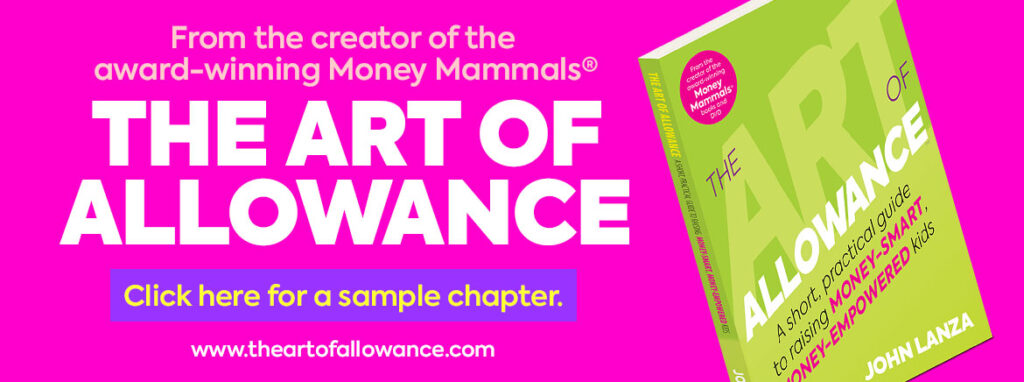
“It [financial education] starts in the home. It starts with families. It starts with parents making sure their kids are empowered and getting the lessons. Because if it’s not you, it’s really not in schools. It’s not in colleges. There’s nowhere else.”
— Vince Shorb
Host John Lanza speaks with Vince Shorb about the importance of financial education, the need for financial literacy programs in schools and the challenges of scaling these programs. They address the underappreciated role of parents in financial literacy education and the importance of teaching kids to save, earn money and control expenses, while highlighting the power of compounding and the psychology of money. They also discuss similar grandfatherly advice influenced by The Great Depression. Vince shares his early money lessons and how his parents encouraged his entrepreneurial spirit while emphasizing the importance of resilience in making financial decisions.
Vince Shorb, CEO of the National Financial Educators Council (NFEC), has helped transform financial education by developing engaging and effective programs that significantly impact diverse communities. The NFEC’s over 2,500 programs help empower community champions to help citizens work toward financial self-sufficiency and security.
Links (From the Show)
- Connecting with Vince
- Vince on LinkedIn
- The NFEC’s website, Money XLive events, “United for Financial Literacy℠” campaign, financial literacy standards topic areas and policy guide for high school financial literacy education
- Money-Smart Mentions
- The Brown University study whose authors found that kids form work ethic habits by age 9
- The Adolescent$ program’s “Good Money Habits” video short on “Keeping up with the Joneses”
- Morgan Housel’s The Psychology of Money
- Robert Kiyosaki’s website
- Bryan Caplan’s The Case Against Education
Show Notes (Find what’s most interesting to you!)
- How investing highs and lows led to Vince’s roles in the financial services field [2:25]
- The goals of the NFEC [3:52]
- The NFEC’s most impactful program [4:50]
- What do Wilmer Valderrama and Kevin O’Leary have in common? [8:10]
- Vince identifies three important behaviors kids should practice to help them become money-smart adults. [10:48]
- Gaining financial freedom through compound interest [15:36]
- Generational money perspectives (including grandfatherly advice) [16:13]
- Why Utah is “the best of the worst” in terms of financial education in schools [20:59]
- Integrating financial literacy in elementary school [24:35]
- Engaging high schoolers by focusing on “near-term life events” [27:02]
- The importance of empowering parents on the money-smart journey [29:42]
- Vince’s stance on tying allowance to chores (featuring a fresh perspective on kids’ contributing financially to the household) [34:15]
- Vince’s diverse monetary influences [39:16]
- Vince’s earliest money memories (including the “black market” selling of reptiles) [41:33]
- Money empowerment, confidence and resilience [43:06]
- The money lessons learned from a house demolition [43:36]
- Vince stresses the importance of empowerment. [46:22]
- Money as the social cause of this time [47:06]
- What Vince is reading now [48:20]
- Vince and the NFEC on the web [50:24]
If you liked this episode …
Want to help your children grasp the power of compounding? During his podcast appearance, former NFL player and current CFP Jedidiah Collins explains how you can teach your kids about compounding using Starburst candy. Listen in at 10:08 for a play by play of this strategy. You can also download a compound interest infographic to help your children visualize the concept.
Looking for more information on the status of financial literacy in the classroom? CFP and podcast host Breanna Reish offers an overview from the perspective of educators during her episode. Start streaming at 9:31, and then check out the Council for Economic Education’s Survey of the States to discover the specific financial education standards in your area.
Interested in another opinion on the great allowance and chore debate? Samantha Paxson, the Chief Experience Officer for Co-op Solutions and a mom to an 11-year-old, tackles this topic with John and guest co-host Robin Taub during her appearance on the podcast. Tune in at 10:41 or watch the corresponding video short.
Please Subscribe
If you like this podcast, then please leave a review and subscribe to the show. The Art of Allowance Podcast is available on iTunes, Spotify, Radio Public and now Amazon Music. Subscribing is free, and it will help us produce more enriching content for you to enjoy.

